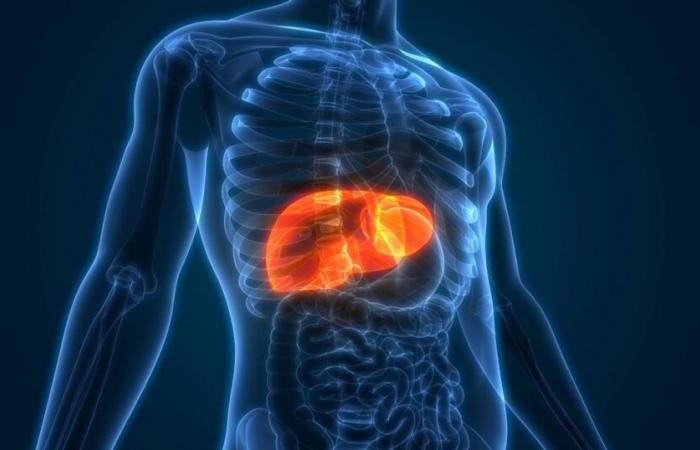EPFL researchers have identified a molecule that could effectively treat the severe form of fatty liver associated with metabolic dysfunction, also called “fatty liver disease”. This discovery opens the way to new treatments for this pathology which affects almost a quarter of the world’s population.
Fatty liver disease associated with metabolic dysfunction, sometimes nicknamed “fatty liver disease” or “soda disease”, is characterized by excessive accumulation of fat in the liver. If left untreated, it can progress to chronic inflammation, fibrosis, or even cirrhosis or liver cancer.
Currently, the only effective treatment in the early stages is lifestyle change (diet and exercise). Unfortunately, the disease is often asymptomatic and detected late.
A key molecule identified
EPFL scientists, in collaboration with international teams, found that levels of NAD+, a molecule essential for cellular metabolism, decreased with disease progression.
“NAD+ is an essential element in all reactions involved in bioenergetics, therefore in the generation of energy in the mitochondria,” explained the director of the integrative physiology laboratory at EPFL Johan Auwerx in the CQFD show.
To restore these levels, researchers inhibited an enzyme called ACMSD, found only in the liver. Tests on rodent cells and human mini-livers showed promising results: reduction of inflammation, reversal of fibrosis and DNA damage.
Towards clinical trials
“This molecule is on its way to the clinic,” rejoices Johan Auwerx. “Normally next year, we will begin preliminary studies to register the drug. I anticipate that the molecule will be in the clinical trial phase within two years.”
The effects observed are particularly encouraging. “It’s quite impressive, especially because it acts on a form of the disease that we thought was irreversible,” underlines the researcher.
This discovery could improve the treatment of severe fatty liver disease associated with metabolic dysfunction, offering hope to those affected by this silent but potentially serious disease.
Stéphane Délétroz and Stéphane Gabioud
Health






